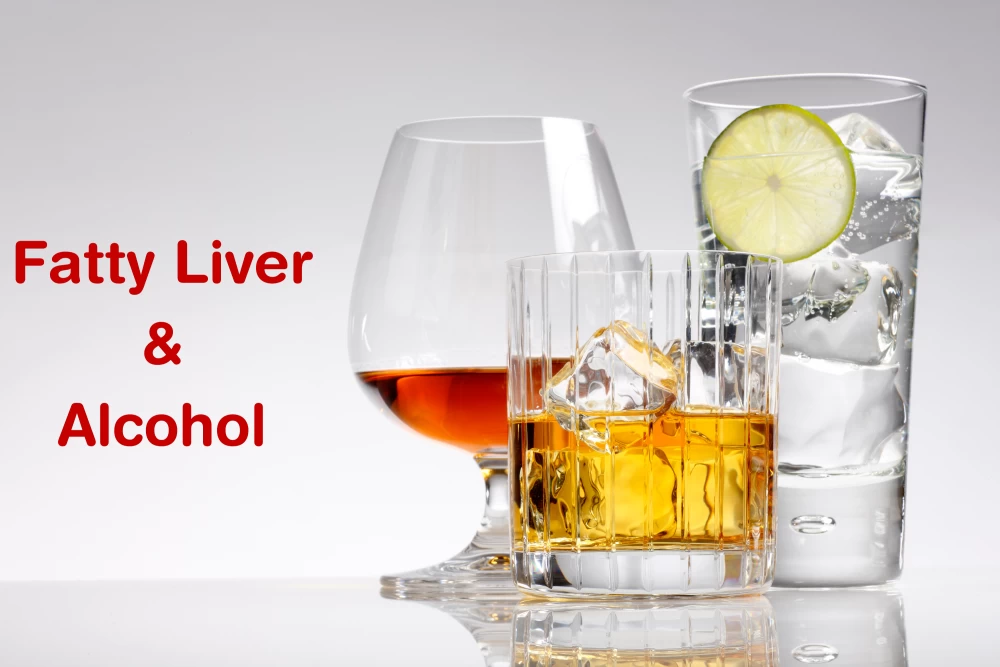
- 20th March 2023
Table of Contents
Health Risks of Drinking Alcohol
Excessive alcohol consumption is a significant risk factor for developing various health problems, including liver disease, cardiovascular diseases, and mental disorders. According to the World Health Organization (WHO), alcohol consumption contributes to over three million deaths worldwide each year. One common health issue caused by excessive drinking is fatty liver disease. Fatty liver disease occurs when there's an excess accumulation of fat in the liver cells, leading to inflammation and scarring. This condition can lead to more severe liver damage if left untreated. While there are several causes of fatty liver disease, alcohol consumption is one of the primary reasons behind it. Alcohol contains empty calories that get stored directly as fat in the liver cells. If you have fatty liver disease or want to prevent it from occurring, limiting your alcohol intake or avoiding it altogether may be necessary. Drinking in moderation means consuming no more than one drink per day for women and two drinks for men. However, even moderate drinking can be harmful if you already have a pre-existing medical condition or risk factors like obesity, diabetes or high blood pressure.
Understanding Fatty Liver Disease
Alcohol is a major contributor to fatty liver disease. It is the most common cause of the condition in Western countries, leading to excessive fat accumulation in the liver. However, a moderate amount of alcohol intake may not necessarily lead to fatty liver disease. The American Heart Association defines moderate drinking as up to one drink per day for women and up to two drinks per day for men. If you have been diagnosed with fatty liver disease, it's best to avoid or limit your alcohol intake as it can increase inflammation and worsen the condition. Instead, focus on adopting a healthy lifestyle and dietary changes that help improve your liver health such as consuming more fruits and vegetables, lean protein sources, and whole grains. A balanced diet along with regular exercise can help reduce excess weight which is also linked with fatty liver disease. It's important to understand that there are no specific diets recommended for people with this condition but rather making long-term sustainable lifestyle changes that promote overall health will benefit those with or without any underlying medical conditions including fatty liver disease.
Effects of Alcohol on Fatty Liver
Alcohol consumption is a significant factor in the development of fatty liver disease. The liver is responsible for breaking down alcohol, and excessive drinking can cause fat build-up in the liver cells. This fat accumulation can lead to inflammation, scarring, and ultimately irreversible damage if not addressed. Consuming more than two drinks per day for men and one drink per day for women increases the risk of developing fatty liver disease. Furthermore, heavy alcohol consumption can also exacerbate existing cases of non-alcoholic fatty liver disease (NAFLD). Those with NAFLD who engage in heavy drinking are at a higher risk of developing alcoholic hepatitis or cirrhosis. Those with pre-existing health conditions such as obesity or diabetes are particularly vulnerable to these negative effects. While moderate alcohol consumption may not necessarily cause harm to those without pre-existing health conditions, it's essential to consult with a healthcare professional before consuming any amount of alcohol regularly. It's crucial to manage your overall health by making healthy lifestyle choices such as eating a balanced diet, exercising regularly, and avoiding habits that could negatively impact your health long-term.
Tips for Moderate Drinking

1. One of the most important tips for moderate drinking is to know your limits. This means understanding how much alcohol you can consume without experiencing negative health effects, such as impaired judgment or liver damage. Generally, safe alcohol consumption ranges from one drink per day for women to two drinks per day for men.
2. Another tip for moderate drinking is to choose lower-alcohol options when possible. For example, beer and wine typically have a lower alcohol content than spirits like whiskey or vodka. Additionally, opting for non-alcoholic beverages like water or soda in between alcoholic drinks can help reduce overall consumption.
3. Finally, it's important to be mindful of how often you are consuming alcohol if you want to practice moderation effectively. Drinking every day or binge drinking on the weekends can quickly lead to excessive consumption and negate any potential health benefits associated with moderate drinking. Instead, aim to limit your alcohol intake to a few times per week at most and consider taking occasional breaks from drinking altogether.
Diet Changes to Consider
Fatty liver disease is a condition that is predominantly caused by excessive alcohol consumption and obesity. However, in some cases, people who aren't heavy drinkers can also develop fatty liver disease due to poor dietary choices. While it's always best to completely eliminate alcohol when trying to improve your liver health, moderate drinking could be an option for some individuals with fatty liver disease. Moderate drinking means one drink per day for women and two drinks per day for men. When it comes to diet changes for fatty liver disease, reducing sugar intake is crucial. Sugar-sweetened beverages like soda and fruit juices are especially harmful and should be avoided or consumed in moderation. Additionally, incorporating more fruits, vegetables, whole grains, lean protein sources like fish and chicken into the diet can help reduce inflammation in the body and improve overall liver function. Making dietary changes can be challenging but taking small steps towards a healthier lifestyle can make all the difference when it comes to managing fatty liver disease. It's important to consult with a healthcare professional or registered dietitian before making any significant dietary changes or starting an exercise program.
Conclusion
In conclusion, if you have a fatty liver, it's best to limit or abstain from alcohol consumption as much as possible. Even moderate drinking can lead to further damage and inflammation of the liver. However, if you do choose to drink in moderation, it's important to follow certain guidelines. For instance, men shouldn't exceed two drinks per day while women should stick to one. It's also recommended that you avoid binge drinking and consume alcohol with food. Keep in mind that a fatty liver diet is just one part of the treatment plan for this condition. You should also incorporate regular exercise and weight loss into your routine if necessary. Additionally, avoiding processed foods and eating plenty of fruits and vegetables can help improve overall liver health. Finally, be sure to speak with your healthcare provider about any concerns or questions regarding your diet and alcohol consumption. They may recommend additional tests or treatments based on your individual needs and medical history. By following their advice and making lifestyle changes as needed, you can protect your liver health for years to come.














